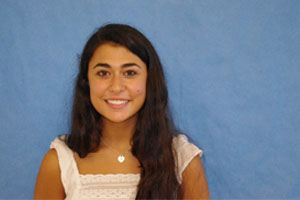Ask 6-year olds what they want to be when they grow up, and you’ll get a different answer every day.
Ask typical high school graduates what they plan to do, and you’ll often get a far-fetched possibility accompanied by an eye roll.
However, there are some who have it all figured out.
Sage Verneuil ’12 has an interest in raves and electronic music that has focused her post-secondary plans on attending Dubspot, a school in New York City that specializes in the production and disk jockeying of electronic music.
“I decided to attend this school because it is flexible and allows me to go to class only once a week for seven hours,” Verneuil said. “There’s no application process so I knew instantly this was the school I wanted to go to since there aren’t many schools like this nearby.”
At Dubspot, Verneuil plans on focusing on both the DJ-ing and production aspect. Students can choose their own curriculum by deciding whether they would like to create their own music or DJ using the four programs Dubspot offers instruction in.
“The program I picked is Ableton Live, and I will be trained in all uses for this program, such as sound design, mixing and rendering, DJing and production, and how to use turntables and controllers like the Akai Professional APC20,” Verneuil said.
The unrestricted course load makes it easy for Verneuil to pursue other interests on the side.
Senior Danielle Hartog’s love for cooking and food leads her down a planned path after graduation to the world’s premiere culinary college, the Culinary Institute of America in New York.
“I knew I wanted to go into the restaurant industry, and this school is the best for that,” said Hartog.
At the Culinary Institute of America, learning takes place mostly in the kitchens, but other general education courses are offered as well.
“I’m most excited for the fact that my school is academically driven, but more of a focused subject,” said Hartog. “It’ll be a change from what I’m used to in high school and is seen in liberal arts schools.”
Unlike most seniors, the application process for Hartog did not require years of resume building, months of stress, and weeks of anticipation. SAT’s were optional, and only an essay along with two recommendations from people in the culinary business were required.
“I applied in August, and decisions came out in late August or early September. If I wasn’t accepted, I would have time to apply to another school, but I didn’t have to,” said Hartog.
On the contrary, there are some students who don’t have immediate plans at all.
Sophie Shufro ’12 decided to take a gap year in order to take a break from the demanding world of academia.
“I’ve worked ridiculously hard over the last four years, and a year off will help me recover some lost enthusiasm for learning,” said Shufro.
Not only will a gap year be refreshing, but it will also allow her to accomplish interesting goals and wishes in a convenient time period. Although her plans aren’t set in stone, Shufro hopes to spend the fall semester volunteering in a Spanish-speaking country and then travel during the spring, possibly on a program such as a Semester at Sea.
Shufro’s decision to take a gap year did not come stress-free. Her high school years consisted of studying for exams, writing papers, and preparing for the required standardized tests-all of which contributed to the need for a break from education.
“I went through the exact same application process as most of the other seniors before I made my decision. I still need to write a request for deferral to the college I’ll be attending after my gap year,” said Shufro.
Once the year has passed, Shufro will begin the 2013-2014 school year as a freshman at Ponoma College in Claremont,Calif.
No matter where students end up, the experiences within the school and Westport community have made an impact on every individual. It is with this knowledge that the students of Staples will become successful.














































